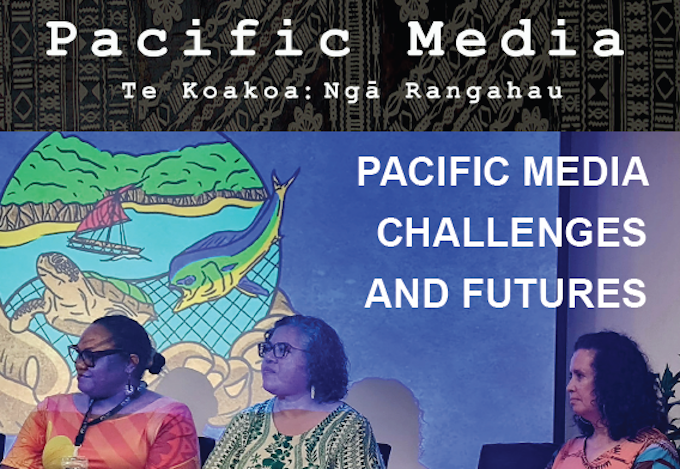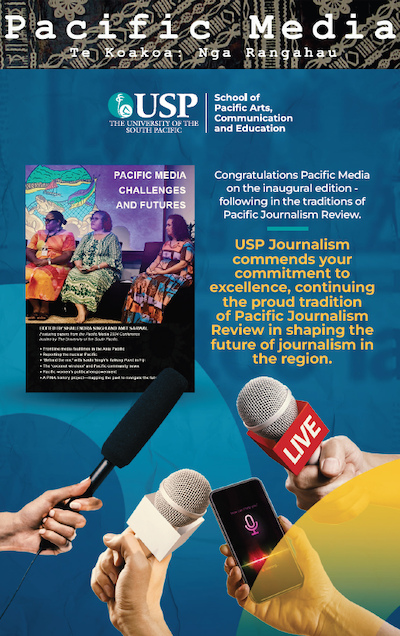
Pacific Media
University of the South Pacific’s Associate Professor Shailendra Singh, who edited the inaugural edition of Pacific Media journal along with co-editor Dr Amit Sarwal, has responded to the publication with a Q and A.
The new journal has replaced the Pacific Journalism Review, which was founded by Professor David Robie at the University of Papua New Guinea and published for 30 years.
This new publication, supported by Tuwhera Open Access at Auckland University of Technology, was also founded by Dr Robie and the Asia Pacific Media Network and it is hoped that it will offer greater community media access and flexibility.
What does this new publication, Pacific Media, signal?
Dr Shailendra Singh: It signals an ongoing commitment to research on Pacific media, development, and democracy — just when such research is most urgently needed to understand the impact of multiple forces reshaping the region. These include artificial intelligence, misinformation and disinformation, the intensifying geopolitical contest between China and the West, the drugs and HIV epidemic, and the existential threat of climate change. With the world on track for a three-degree Celsius temperature rise, some reports describe this as a “death sentence” for Pacific reefs, food security, and livelihoods.
Yet, even as Pacific media confront one of the most complex and challenging reporting environments in history, they remain financially fragile, due to the impacts of digital disruption and covid-19.
The 2024 Pacific Media International Conference was quite an innovative step — bringing media academics and the industry together. How has that helped the region?
It created greater awareness of the challenges facing Pacific news media and exposed some of the industry’s structural weaknesses. Importantly, it fostered a better understanding — and hopefully, greater empathy — among the public toward the difficult conditions under which Pacific journalists operate. The conference underscored the importance of ongoing research, provided direction for future studies, and demonstrated the power of regional collaboration by amplifying Pacific voices and ideas.
How does the partnership between the USP Journalism Programme and the Pacific Media publishers, Asia Pacific Media Network, contribute to journalism excellence in the region?

Research on Pacific media is as scarce as it is vital for the development of Pacific journalism. The USP Journalism Programme and the Asia Pacific Media Network are the only two entities consistently conducting dedicated research on Pacific media, democracy, and development. Historically, both have been vocal about threats to media freedom and the welfare of journalists. They have documented the impact of coups and other forms of repression, while advocating for journalist safety, ethical standards, and media independence through awareness and education.
What next?
The next step is to consolidate and expand research, and training and development. This means deepening partnerships between academia and industry, mentoring a new generation of Pacific media researchers and journalists, and securing sustainable funding for long-term studies.
It also involves strengthening regional collaboration so that Pacific voices lead the global conversation about the region — rather than being spoken to and for. Ultimately, the goal is to ensure that Pacific media remain resilient, independent, and equipped to serve their communities in the face of profound social, technological, and environmental change.
The next edition of Pacific Media, edited by Khairiah A Rahman and Dr Rachel Khan, will also be published shortly.
Republished from Pacific Media journal’s website.













































